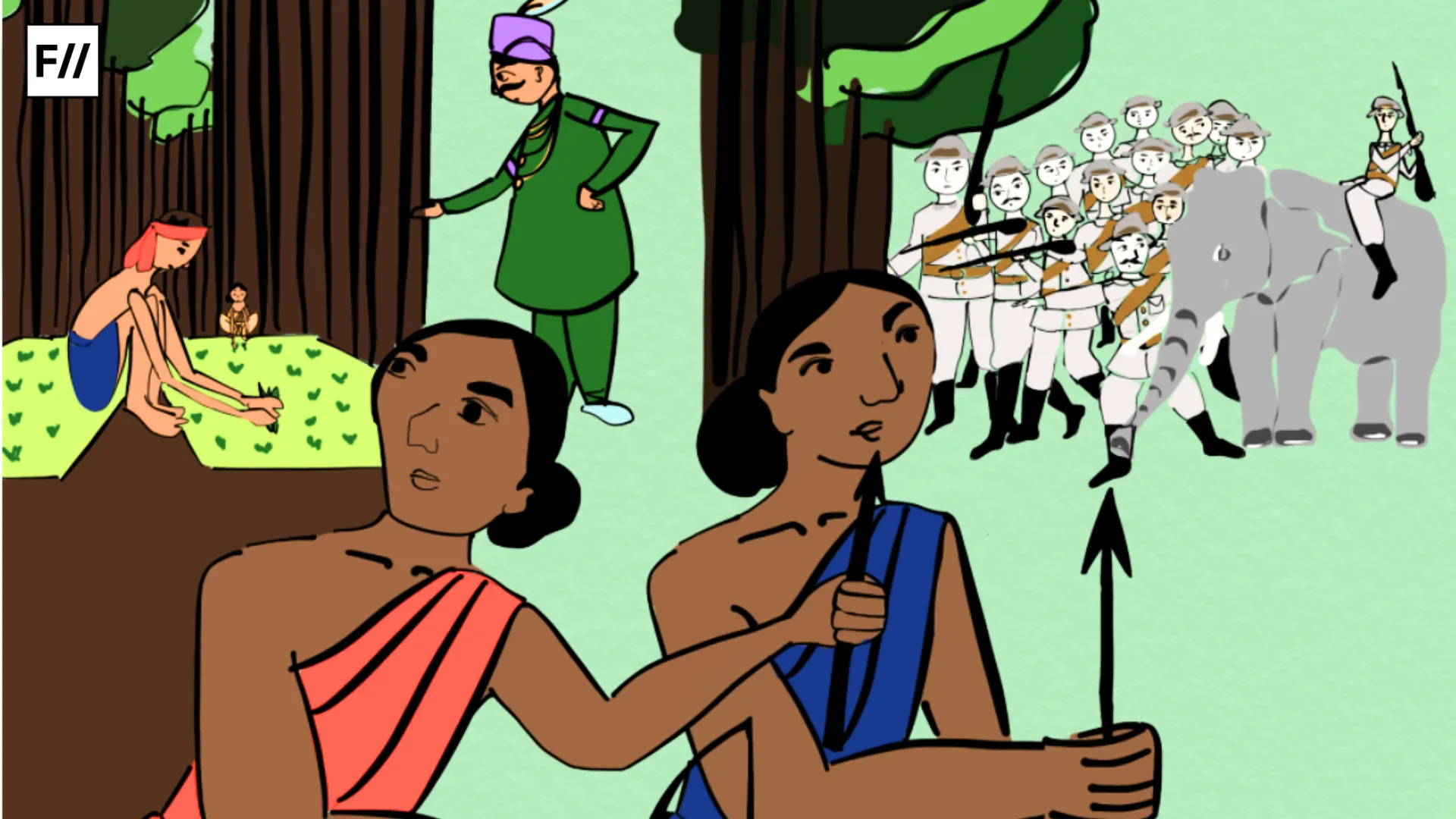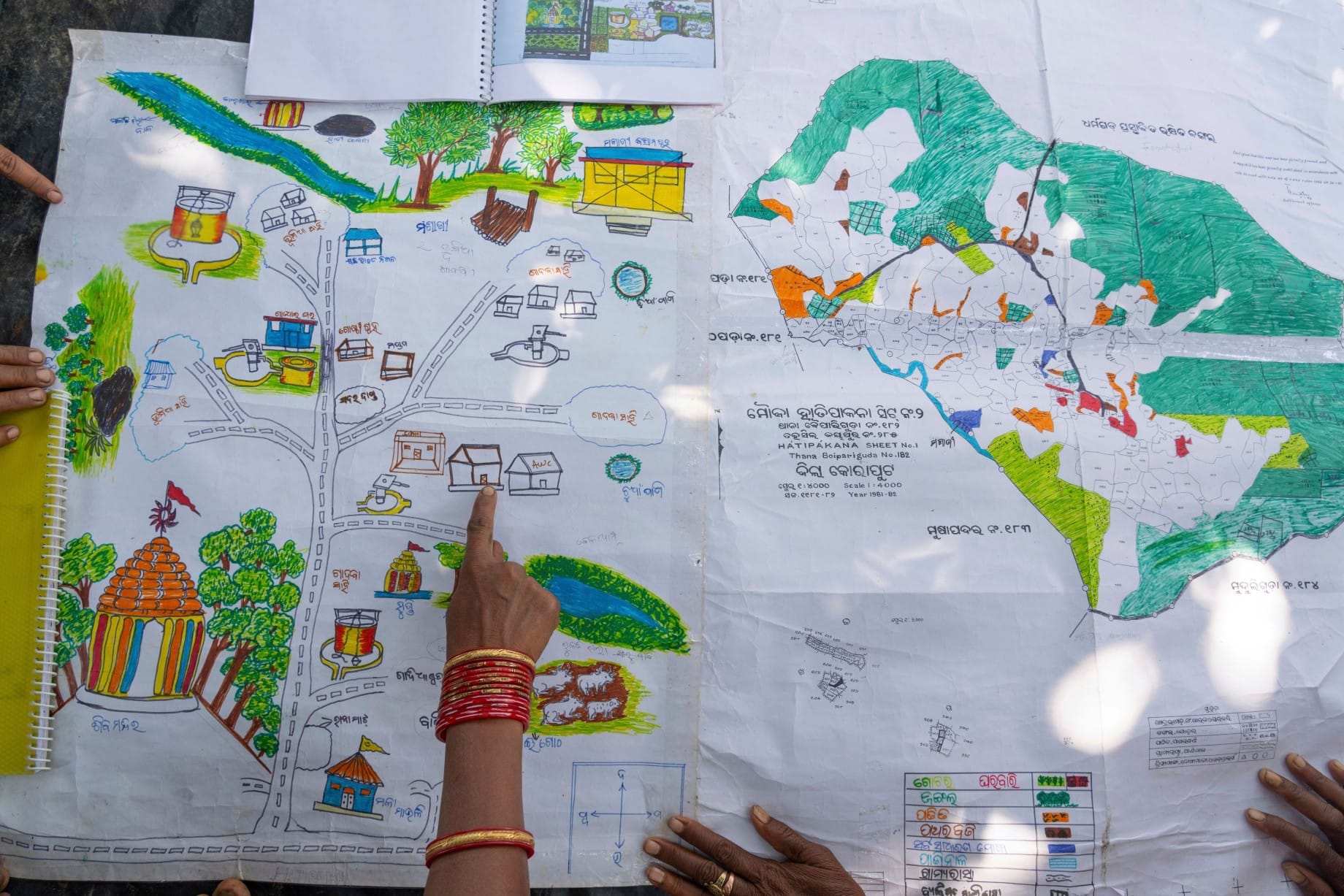Tribal literature stemmed from mythology with surreal descriptions of gods and miraculous anecdotes, but slowly these intellects shifted to on-ground realistic questions. Drifting from oral reminiscences to finding a script and classifying the staunch struggles of the people of Jungle, these bold writers and poets have portrayed raw rebellions, honest dreams and complex clashes between these two things.
Alice Ekka (1917-1978) is regarded as the first female Aadivasi storyteller in Hindi Literature, while Sushila Samad (1906-1960) is recognised as the first tribal woman who was an editor, scholar, freedom fighter, and poet. She also published two striking poetry collections in the 1920s. Likewise, far from the mainstream, Naryan is the first Indian tribal novelist who underlined the deep-seated questions through his Malayalam novel ‘Kocharethi,’ (1998). Despite the determination of tribal linguists like Munshi Mangal Singh Masram to rectify the Gondi language, the varied linguistic backgrounds have compelled these writers to rely on other regional scripts like Hindi, Bengali, Malayalam, Telugu, Marathi et cetera making them easy prey of upper-caste and particularly Pro-Brahmanist terrains of literature.
Harking back to the legacy of Ram Dayal Munda, Rose Kerketta, Temsüla Ao and others, it can be said that the Adivasi creative arena has nurtured more poets than writers and more women writers than men littérateurs. As a result, the contemporary tribal icons of literature are not bound by language barriers but expanded to the horizons of humanitarian activism. Amid the extreme hype of blood-drenched capitalism, they talk about life-threatening conflicts to unleash the patterns of governmental, social, cultural and subjective tyranny of the people of the jungle who are also the people of India.
Here are the top five leading contemporary tribal writers and poets to read on for the most marginalised yet the most sensitive and soul-stirring experiences of tribal agonies.
1. Jacinta Kerketta
Jacinta Kerketta is a young tribal icon from Jharkhand who has emerged as a prominent Aadivasi voice in Hindi Literature and Journalism. She has also been marked in the Forbes India list of top 20 self-made women. The inventive compass of Jacinta debates on the arbitrary practices of administration and targeted repression of the Aadivasi community with a clear socialist inclination. Her first poetry collection ‘Angor‘ shed light on the trenches and differences between polished development goals and the marginalised regions. This English-Hindi collection received international recognition and was translated into German, Italian and French. Meanwhile, her other two poetry collections ‘Jadon Ki Zameen‘ and ‘Ishwar Aur Bazar,’ unveil the suppression of land rights and tribal identity.
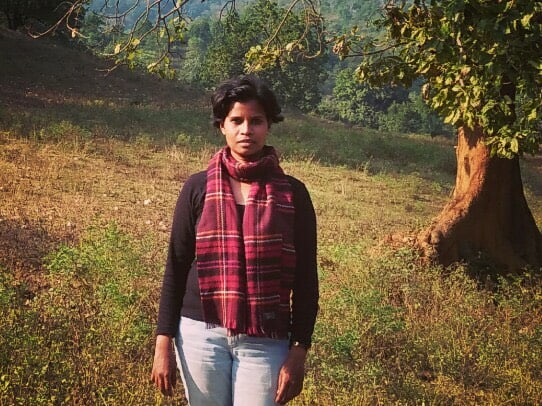
Side by side, Jacinta has remarkably contributed to prominent media organisations with her on-ground goals and efficient social-work endeavours. Emphasizing her home state Jharkhand, her compact poems don’t require unrealistic imagery when presenting the magical realism of ground tussles. She has received an award from “Asia Indigenous People’s Pact (AIPP)” for her journalistic works and numerous literary awards, including the “Ravishankar Upadhyay Memorial Youth Poetry Award” for creative contributions. In November 2023 she refused an award from the India Today Group to oppose the insensitivity and silence of mainstream media on critical tribal matters.
2. Anuj Lugun
Representing the vital legacy of the Aadivasi community on an all-encompassing scale, Anuj Lugun is a fresh literary voice of Tribal mutiny from Jharkhand. After getting rapid recognition with his poem “Aghoshit Ulgulan” in 2011, he has been constantly present in poetic activism. His poems and essays often underline the plight of Adivasis and the gruesome aftermaths of capitalism-infused fascism, but his love poems have also grabbed attention through the utmost genuine depiction of affection and friendship. His second poetry book “Baagh aur Sugna Munda Ki Beti” has won the “Yuva Sahitya Akademi Award” (2019) for its sensitivity towards collective tyrannies and historic grasp.
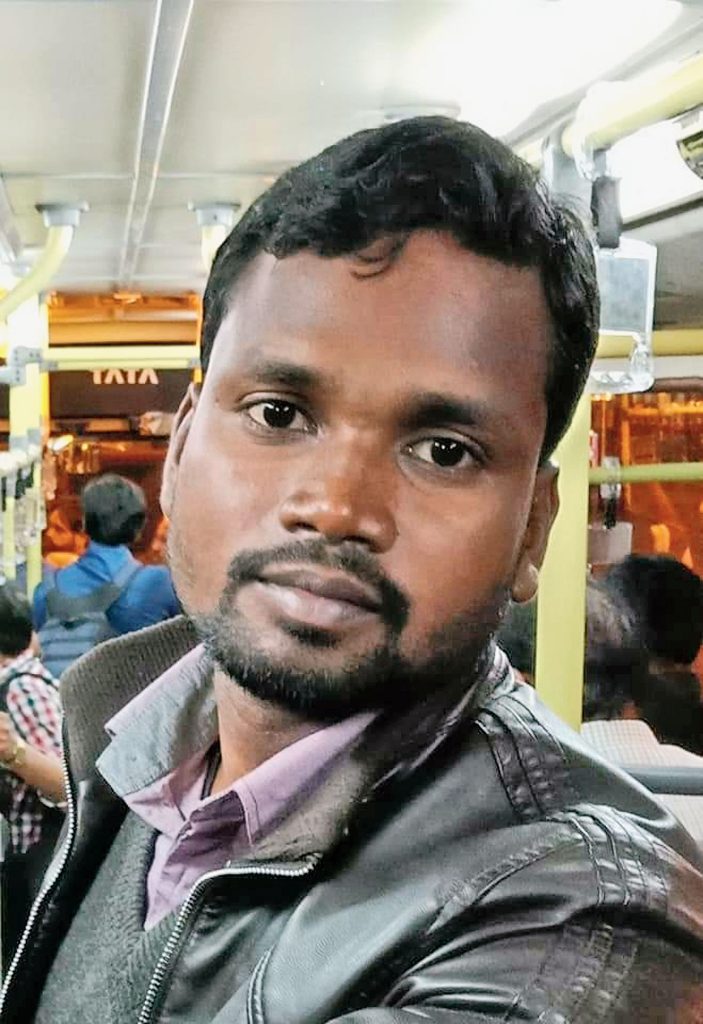
The humanitarian red universe of Anuj Lugun proves that inclusivity not only needs sidelined subjects but also marginalised writers for detailed documentation. Anuj’s other book “Patthalgadi” his numerous stories and articles have also been widely appreciated. Currently, he is working as an assistant professor in the CUSB.
3. Vandana Tete
Vandana Tete is a writer, poet and social worker from Simdega, Jharkhand. By portraying the life, pain and heroism of the Scheduled Tribes, Vandana has been openly criticising the fascist forces and reinforcing the literature of rebellion. Her books “Kiska Raj Hai” “Purakha Ladake” and “Kavi Man, Jani Man” have pointed towards the legally justified instruments of inequality. Majorly writing in Hindi and Khadiya Language, Vandana Tete has also contributed to intersectional feminism, journalism, folksongs and the linguistic movement in 2003 to safeguard Jharkhandi Languages.
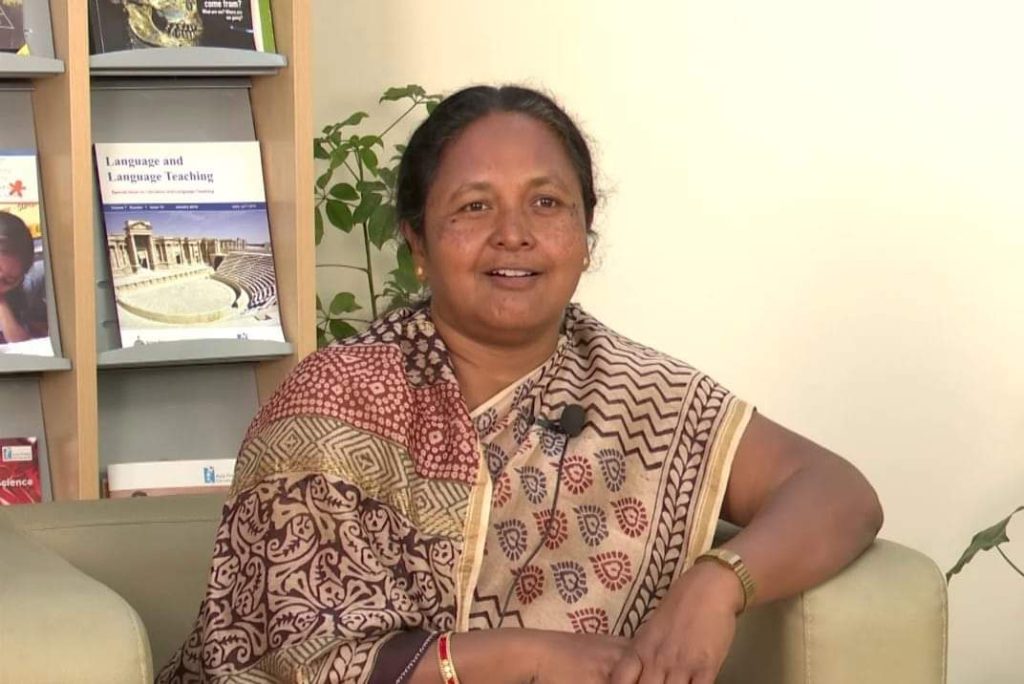
Despite her stunning contribution to the legacy of literature, art and culture; the pro-Brahminist, misogynist, discriminatory, highly hypocritical and pseudo-progressive groups of the Hindi arena have not given her the space that was her essential intellectual right.
4. Ushakiran Atram
Ushakiran Atram often underlines the misogyny of majorly prevalent traditions and texts to decode the origins of inequality and injustice. As a writer, poet and significant activist from the Gond Tribe of Maharashtra, Ushakiran has extensively written in Hindi, Gondi and Marathi to explore the tribal filaments in History. Her first Gondi poetry collection ‘Morki‘ (1993) talks about the life tussles of an Adivasi newcomer in the Gadchiroli district of Maharashtra, while her noteworthy Hindi works “Aher Katha Sangrah” and “Gondwana ki Veeranganayein” have been highlighted for the documentation of Indigenous braveries. In January 2024, her demand to include the Gondi language as an official language of India received eclectic attention from civil society.
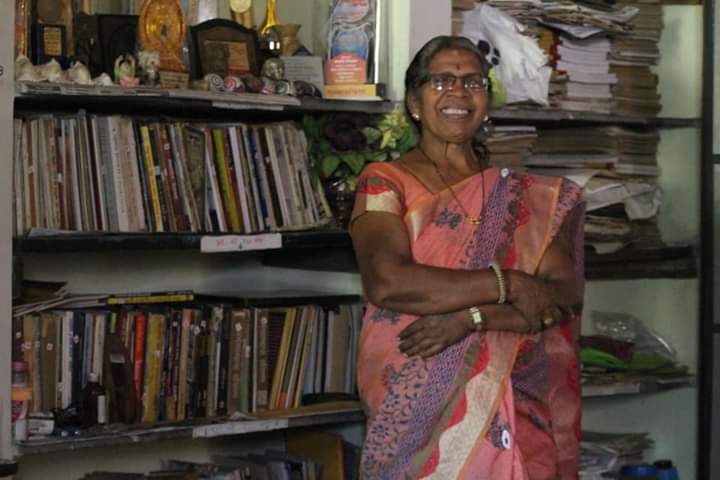
Even when picturising dejected themes, her creative world has been vivacious enough to save the sparks of hope and sensitive enough to stir up worldwide consciousness. Ushakiran has an eye for raw mesmerising aesthetics and expressive sagacity of the people of the jungle. She leads the Dhanegaon branch of All India Adivasi Sahitya Sangh to protect the culture, history and languages of the state.
5. Nirmala Putul
Another female poet, writer and social activist from Jharkhand, Nirmala Puttal has been a feminist and antifascist voice in Hindi Literature and Santhali vernacular for more than 15 years. Her work sheds light on the Indigenous life and nature-centric culture of co-existence to fight political oppression, but she has also written on the internal hazards and misconceptions of her community with a reformative approach. Her poetry books “Nagade ki trah bajte Shabad,” “Apne ghar ki talash,” and “Futega ek naya Vidroh” are regarded as a symbol of grass root munity. Rotating around the life of tribal women, her themes often address the industrial and social exploitation of Tribal women in the alleged ‘civilised‘ places.
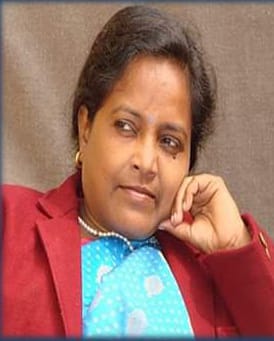
Due to the broader appeal, her poems have been translated into several Indian languages. Her poetic works and activism both have emphasised human rights, women’s rights and the right to education.
These courageous writers with no diplomatic filters are embodiments of the truest purpose of literature. People who raise their fingers at the novelty and aesthetics of these voices of ‘Jal, Jungle, Zameen,’ must know that these brilliant souls have been resilient enough to pen down when pens are being snatched. They write to record their past, present and future and to safeguard their roots, rights and existence.
It’s also notable that the more targeted regions have fostered the more rebellious tribal spirits. These 5 contemporary resilient wordsmiths prove that the sense of existential sovereignty increases its intensity to fight amid more distressing situations.
This is by no means an exhaustive or representative list. Suggestions to add to this listicle are welcome in the comments section.
About the author(s)
Mariyam (she/her) has a thirst for significant stories that consist of humanitarian and feminist themes. She comes from Journalism, English Literature, and Political Science academic background.
For her, words are a visionary sovereignty to stand on and find the meaning of being while journalism is the only place where truth comes with facts and data. She also likes documentary photography, Rumi's spirituality, dreaming, and stargazing.



